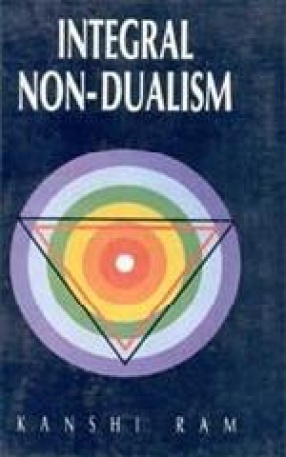Beginning with Bane of Permissive Society where exceptions become the rule and the rules remain as mere exceptions, Shri Yogendra speaks of the modern sick society and ignorance about oneself and one’s motives. The sense of duty is lacking he feels because of a partial understanding of man. We depend for our knowledge on limited perceptions. Unfortunately the practitioner of yoga is like the modern materialist given to show to competition and to acquisition of material wealth. As against this Shri Yogendra puts forward the Yogic thesis of self discipline, concentration and selflessness.
Why Yoga: A Yogic Thesis to a Life Well-lived
by Yogendra
$12.60
$14.00
In stock
Free & Quick Delivery Worldwide
All orders amounting to US$ 50 or more qualify for Free Delivery Worldwide. For orders less than US$ 50, we offer Standard Delivery at $14 per book.
ABOUT THE AUTHOR Yogendra
Born Manibhai Haribhai Desai in the year 1897 in rural Gujarat, the boy, later to be known as the Founder, Shri Yogendraji, suffered from poor health. With the help of a sympathetic school teacher, however, he was able to completely transform himself into a robust individual, known for his feats of strength. This influence fired him with a burning zeal for reformation from this time onwards. While undergoing college education in preparation for a career in the I. C. S., he met under auspicious circumstances Paramahamsa Madhavadsaji of Malsar and completely renounced his wordly career to be a pupil to his guru. During the following years, Shri Yogendraji wrote and published several literary works of distinction including the first Gujarati translation of Tagore's Gitanjali. In 1919 at the behest of his teacher, the Founder left the shores of India for America after having founded The Yoga Institute for Bombay in 1918. In America he founded the first organised centre on Yoga. It co-operated with the Rockefeller Institute for Medical Research and other India in 1922, the Founder engaged in Indological researches with the help of Dr. S. N. Dasgupta, who was later to say of him. "You are now capable of achieving through jnana yoga, your objective like an arrow, being ever dedicated to research on truth." Much work was cone to locate old manuscripts from all over the country. Most of the works of the Founder have been sealed in "The Crypt of Civilisation" to be read after 6000 years. In 1947, The Yoga Institute got its permanent headquarters at Santa Cruz (East), Bombay. In 1958, with the objective of preparing trained teachers to teach Yoga, The Teachers' Training Institute was started. In 1971, under the auspices of the Government of India, medical research was conducted with a panel of 14 doctors. In 1973, The International Board of Yoga was founded. Put in an epitome, the whole life of Shri Yogendraji has been a crusade to preserve the pristine of classic Yoga and its technology for the benefit of modern man. Shri Yogendraji has preferred to be forthright in his views and is content that the Institute he has built, though small, is self-supporting, vital and strong besides beings imbued with the classical spirit of Yoga.
reviews
0 in total
Review by Anonymous
Be the first to review “Why Yoga: A Yogic Thesis to a Life Well-lived” Cancel reply
You must be logged in to post a review.
Bibliographic information
Title
Why Yoga: A Yogic Thesis to a Life Well-lived
Author
Edition
1st ed.
Publisher
The Yoga Institute, 2002
ISBN
8185085030
Length
182p., 17cm.
Subjects
more by Yogendra see more
similar bookssee more
History of Science, Philosophy and Culture in Indian Civilization: Agriculture in India: History of Agriculture in India (Up to c. 1200 AD) (Volume V, Part I)
The volumes of the Project ...
$160.20
$178.00
Integral Non-Dualism: A Critical Exposition of Vijnanabhiksu’s System of Philosophy
Vinanabhiksu, the author of ...
$7.20
$8.00








There are no reviews yet.